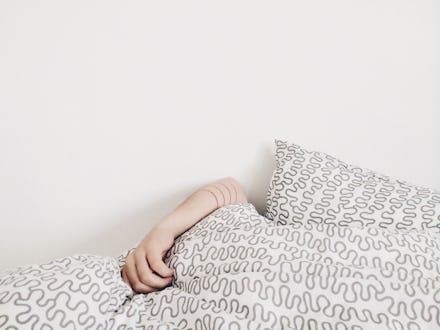Here's How Lack of Sleep Actually Affects Your Health — and How Much Sleep You Really Need

You may already know that a night without sleep makes you grumpy, or that pulling an all-nighter makes you feel totally groggy the whole next day. Or maybe you're one of those miraculous humans who "doesn't really need sleep" — but everyone needs sleep, and it turns out that going without it can have some pretty serious health effects on your body.
Read: Here's Why You Should Sleep Naked, According to Science
According to the National Heart, Lung, and Blood Institute, sleep deficiency can take a scary toll on your physical well-being. "Ongoing sleep deficiency is linked to an increased risk of heart disease, kidney disease, high blood pressure, diabetes and stroke," the organization stated on their website. So even if you feel OK after only a few hours of sleep, skipping out on too much may actually be risking your health.
Not getting enough sleep may also be making you crave junk food, it turns out. A study published in the journal Sleep found that getting around four hours of sleep a night made study participants eat more snacks like Doritos, Cheetos and ice cream than participants who got closer to eight hours a night.
Missing out on sleep can also have a detrimental effect on your sex drive — lack of sleep has been linked to both erectile dysfunction and low libido in women.
Even sleeping poorly for just a few nights in a row can make you worse at everything. According to the NHLBI, "People who are sleep deficient are less productive at work and school. They take longer to finish tasks, have a slower reaction time, and make more mistakes. After several nights of losing sleep — even a loss of just one to two hours per night — your ability to function suffers as if you haven't slept at all for a day or two."
Not sleeping can also be deadly: Sleep deficiency leads to distracted driving, which can lead to fatal accidents. According to the NHLBI, "It's estimated that driver sleepiness is a factor in about 100,000 car accidents each year, resulting in about 1,500 deaths."
So how much sleep should you actually be getting every night to make sure you're safe from the scary effects of sleep deficiency? The National Sleep Foundation recommends that adults get seven to nine hours of sleep per night. If you're regularly getting less than the recommendation, it might be a good idea to speak to a health professional and figure out some strategies to get the rest your body and brain need.